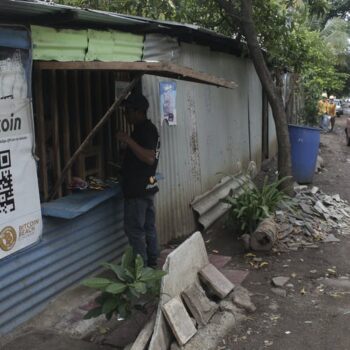Key Takeaways:
When you work on a project with people and successfully solve a problem, you (rightly) feel proud and accomplished. If the project helped create some “thing” that will require further maintenance and attention, you’ll probably come to love (and hate) that system. Don’t be afraid to move on to the next task, always keeping in mind your greater goal of improving the world. Don’t feel a microsecond’s guilt over abandoning a system, or even a company, any more than you would about replacing a code library with a new one.
When is the right time to quit and move on to something else? Setting aside the obvious practical issues like whether we can quit a thing, I’ve often seen people — especially very principled and diligent people — fall prey to a hidden obstacle that I call the “sunk benefit” fallacy.

You’ve probably heard of the “sunk cost” fallacy, in which people are reluctant to give up on something because they’ve already put so much effort into it, regardless of the real question — would the amount of further effort required be justified by the outcome? There, the trick is to ignore “sunk costs” — costs you’ve already paid and which therefore come out the same on both sides of the ledger.
Sunk benefits are similar, but they’re about the wins you’ve already had.
When you work on a project with people and successfully solve a problem, you (rightly) feel proud and accomplished. If the project helped create some “thing,” from a tool to a company, that will require further maintenance and attention, you’ll probably come to love (and hate) that system as you know its idiosyncrasies and nuances.
This can lead to two different feelings of “loyalty” on your part: to the team, and to the system. Both of these can make it feel wrong to abandon the project —but while the first is real, the second is actually an illusion.
When you successfully solved a problem with your system, you created some value in the world — and nothing can reach back from the future and take that away from you. But that doesn’t necessarily mean that you’ll solve future problems in the same way, or with the same tools, or even with the same people.
The things you and your team built were means to an end — the end being the problem you solved. When you come to a future problem, you might reuse ideas, or some parts, but you wouldn’t hesitate to replace a part of the system you built with a better one you come up with later. In the same way, you shouldn’t hesitate to abandon the system altogether and move to a new one if that’s the appropriate choice.
And there’s the rub: the system, be it a single tool or a company you’ve worked at, is just a means, never an end. It was useful in the past, but that doesn’t mean you need to continue to use it in the future whether it’s appropriate or not. That value is a “sunk benefit.”
Value the work you have done and move on to the next task, always keeping in mind your greater goal of improving the world. Be in love with and excited about the problems you have solved and will solve, not the specific tools with which you do so.
Contrast this with the other loyalty we talked about, to the people you worked with. This is different because people are ends, not means. It is right, and good, and healthy for you to want them to succeed and thrive going forward. Invest, therefore, in helping them as people, and in your relationships with them.
But don’t feel a microsecond’s guilt over abandoning a system, or even a company, any more than you would about replacing a code library you wrote a few years ago. It served its purpose then and perhaps a different tool is needed now. The benefit is sunk, and there’s no mystical ledger out there in which you will be rewarded for sticking with a system, a tool, or a company.
Rather raise a glass to celebrate the things you have done; to grieve for the things you wanted to do; and to look forward to the things that you shall do, wherever that challenge may take you.





























